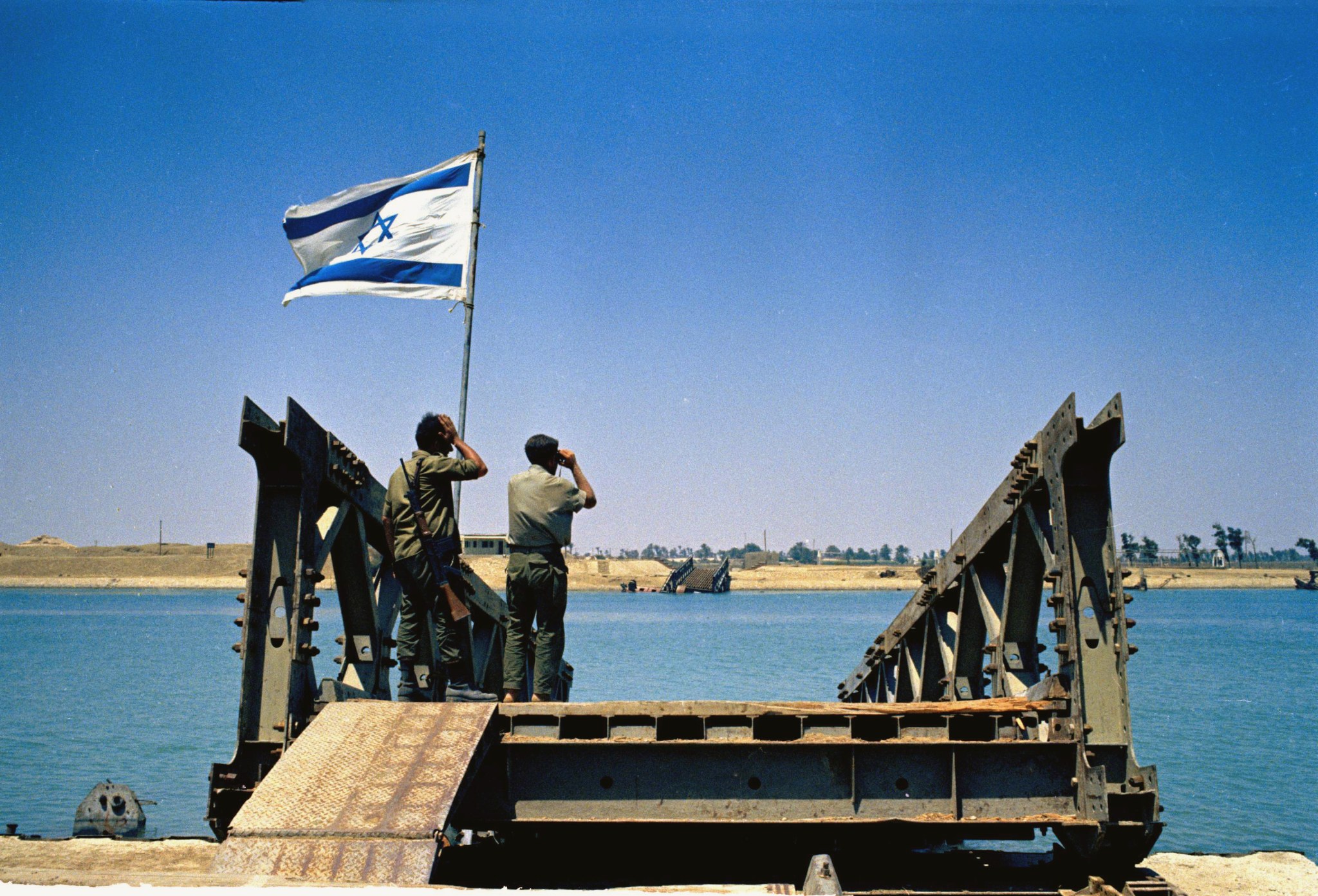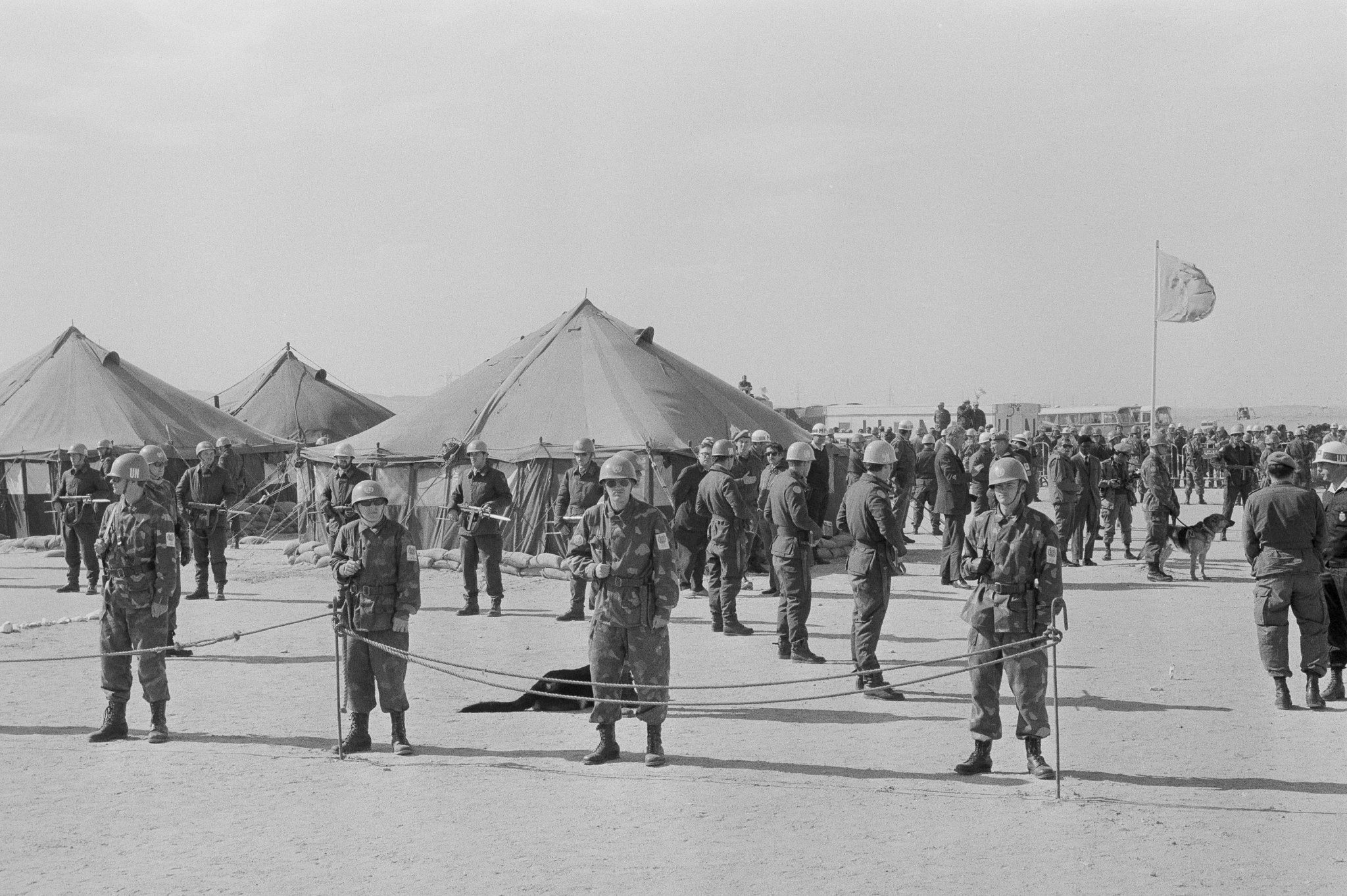What is the land-for-peace principle some hope will resolve conflict in the Middle East?
In short: The U.S. testified at the United Nations’ court on Feb. 21, saying that Israel should not be “legally obligated to immediately and unconditionally withdraw” from occupied Palestinian territory. Instead, they said the International Court of Justice should work within the “land-for-peace” framework when issuing their legally nonbinding opinion. The “land-for-peace” principle grew out of a set of U.N. resolutions from the mid-20th century, and it asserts that, if Israel withdraws from the territory it occupies, the surrounding Arab countries will recognize Israel as a sovereign nation, leading to peace in the region.
What did the U.S. say at the ICJ’s hearing on Israel’s occupation?
The U.N. General Assembly approved a resolution at the end of December 2022 that condemned Israel’s behavior in the Palestinian territories and asked the ICJ, the U.N.’s main judicial body, to issue an advisory opinion on the legality of Israel’s decades-long occupation of the territories.
The ICJ handles two types of cases. Contentious ICJ cases are focused on issues between countries, and the court’s rulings on them are legally binding. Advisory cases arise when a U.N. agency (like the General Assembly) asks the court for a legal opinion. Advisory opinions are typically not legally binding, though exceptions can be made if the ruling pertains to an established U.N. convention.
After several months of preliminary written arguments, the ICJ began oral proceedings in the case on Feb. 19. During these hearings, which are expected to last about a week, representatives of 52 countries and three international organizations are making statements to the court about how they think it should rule.
The U.S. testified to the court on Feb. 21, saying that the ICJ should not try to “resolve” the conflict by issuing a broad advisory opinion, but instead use the land-for-peace framework to issue an advisory ruling that will “support and promote final realization of peace and stability,” which the U.S. believes is best accomplished through a two-state solution.
The two-state solution would create an independent Palestinian state alongside the independent nation of Israel. The U.S. has supported a two-state solution for decades, and President Joe Biden has said he supports the creation of Israeli and Palestinian states based on pre-1967 borders. Multiple Arab nations have made the creation of a Palestinian state a prerequisite to official diplomatic relations with Israel.
After oral proceedings conclude on Feb. 26, the court will begin its deliberation on whether they believe Israel’s occupation of the Palestinian territories is in breach of international law.
What is the land-for-peace principle?
At the center of the land-for-peace principle is the idea that, should Israel withdraw from the territory it occupies, peace will be made by the surrounding Arab countries in return.

According to the U.N. Economic and Social Commission for Western Asia, “The issue of land is at the core of the Palestinian-Israeli conflict,” dating back at least as far as the 1917 Balfour Declaration that called for “the establishment in Palestine of a national home for the Jewish people.” Between 1922 and 1937, many Jewish people, particularly Eastern Europeans fleeing the Nazis, moved to what was then Palestine, which the League of Nations had put under British control in 1922. The Palestinian population pushed back against this and wanted independence.
In 1947, the U.N. attempted to solve this conflict and passed a resolution that proposed splitting the territory then known as Palestine into two states – one comprised mostly of Palestinian Arabs and the other made up mostly of Jewish people. But before this resolution could be enacted, conflict between Arab and Jewish groups broke out, and, in 1948, Israel declared itself a sovereign nation. A war ensued between Israel and its neighbors, and during the war Israel expanded its borders to include 77% of what was considered Palestine before 1947.
The Overview newsletter
The news you need to navigate our world, delivered to your inbox every weekday afternoon.
Syria tried and failed to retake the Golan Heights in 1973, and after a cease-fire was signed between Israel and Syria, a U.N. peacekeeper force moved into the region. Israel annexed the Golan Heights in 1981, and the territory’s ownership is now in dispute. Though the international community has not generally recognized the Golan Heights as part of Israel, the Trump Administration did.
The Camp David Accords — a set of two agreements between Egypt and Israel signed in 1978 and brokered by President Jimmy Carter — are generally considered to be the first example of "land for peace” in action. The accords created a more permanent peace between the two countries through an agreement that Israel would withdraw from the Sinai Peninsula, Egypt and Israel would resume diplomatic relations, and Gaza and the West Bank would become fully autonomous states within five years of the agreement.
However, not all of the stipulations of the Camp David Accords were carried out. Israel still occupies Gaza and the West Bank, although the Palestinian Authority was established as a partial governing system for the Palestinian territories as part of the later Oslo Accords in 1993.
As of this reporting, only five Arab states have official diplomatic ties with Israel.
What do the U.S., Israel, and Arab countries say about the land-for-peace principle?
The U.S. has long been a proponent of the land-for-peace principle, which was reflected in their recent ICJ testimony.
The Arab League, an alliance of Arab nations, has also expressed interest in a land-for-peace solution. In 1967, for instance, the League signed the Khartoum resolution, which included what have been called the “three noes”: no peace, recognition, or negotiations with Israel while Israel occupies the Palestinian territories. These principles were endorsed again in 1982 and 2002, although some Arab nations have established official relations with Israel since. Before the Oct. 7 Hamas attack and Israel’s ensuing “complete siege” on Gaza, Saudi Arabia made the land-for-peace principle a necessary tenet of diplomatic relations between the two countries.

Israeli Prime Minister Benjamin Netanyahu, however, has rejected the possibility of a Palestinian state as part of a cease-fire deal in the Israel-Hamas war and said Israel will keep security control over Gaza and the West Bank.
Support for a two-state solution is also low among Palestinians. Though Palestinian support for a two-state solution reached a peak of 59% in 2012, it has since fallen dramatically. A Gallup poll conducted in the summer and fall of 2023 found that just 24% of Palestinians worldwide supported a two-state solution in which Israel would remain an independent nation. Support was even lower among Palestinians aged 15 to 25.
Your tax-deductible donation enables us to break down the most complex global issues so you have the info you need to build a better world.
.png)
.png)